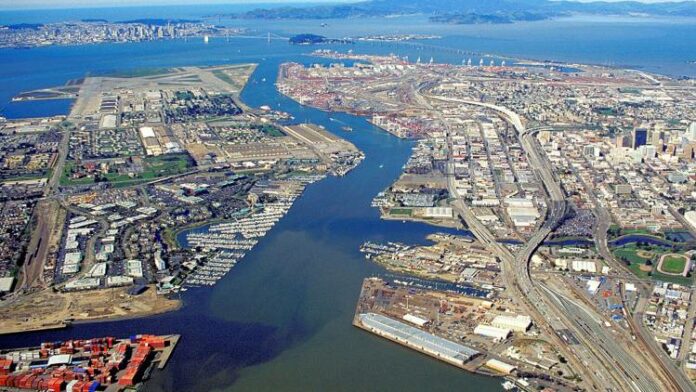The City of Oakland has terminated a lease agreement for a controversial coal terminal, citing breach of contract due to a lack of progress on the ground. The terminal has been held up in court ever since early 2016, when Oakland's city council voted to bar shipments of coal using city land.
Among other potential bulk and breakbulk uses, the terminal would have provided an outlet for Utah-based coal producers to sell to overseas buyers. American coal consumption has been in decline for years, and access to foreign markets is a key concern for coal mining firms – especially transpacific access to China, the world's largest coal importer.
Prior to the 2016 vote, a health advisory panel to Oakland's city council found that coal trains passing through the city would significantly increase air concentrations of fine particulate matter (PM2.5) due to emissions of both coal dust and diesel exhaust. It also noted that coal dust typically contains mercury, lead, arsenic, cadmium and crystalline silica. These substances are a health risk if inhaled or ingested.
The operator, Terminal Logistics Solutions, said that banning a legal commodity like coal would send the wrong signal about Oakland, not about coal. "This type of regulation is not necessary, it kills jobs, and it does not protect the image of our city as being open for business and growth," TLS CEO Jerry Bridges told the council.
U.S. District Judge Vince Chhabria struck down Oakland's ban on coal transport earlier this year, and the city is appealing his verdict.
In the interim, the city has informed project developer Phil Tagami that it is canceling the lease for the terminal. Despite the history of the disagreement, the City of Oakland said that its decision was not related to coal or to public health, but rather with the "developer’s failure to meet its obligations and perform the work it agreed to do." The city is also seeking $1.6 million in damages for nonperformance.
"[Oakland Bulk and Oversized Terminal] had years to move this project forward and has used every excuse in the book to justify its failure to perform,” said city attorney Barbara Parker in a statement. “This terminal is a critical project that will be an economic engine for West Oakland, our entire city and the region. The city must move this project forward with partners who are able to get the job done.”
The 20-acre OBOT facility would have been built on the city's half of the former Oakland Army Terminal, which was decomissioned in 2006 and split between Oakland and the Port of Oakland. City leaders have said that they were not informed of the developer's plan to handle coal at the terminal when Oakland signed the lease agreement in 2012.
Source:maritime-executive



